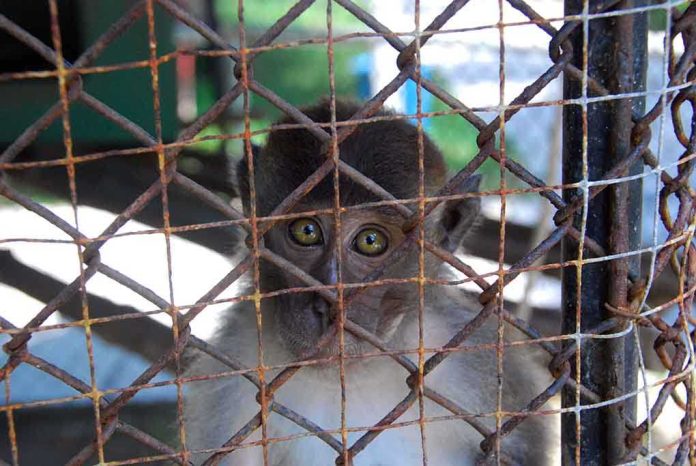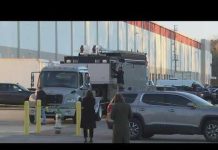
A Deputy Mayor’s tragic death at the hands of invading monkeys exposes the deadly consequences of government inaction on urban wildlife control, highlighting how failed policies put citizens at risk in their own homes.
Story Snapshot
- Deputy Mayor Surinder Singh Bajwa died after falling while defending his home from a swarm of rhesus macaque monkeys
- Delhi’s monkey population crisis stems from religious feeding practices and inadequate government wildlife management
- Municipal authorities captured only 1,250 monkeys since May despite widespread public safety concerns
- The incident reveals dangerous tension between animal rights activism and citizens’ right to safety in their homes
Political Leader Dies Defending His Home
Surinder Singh Bajwa, Deputy Mayor of New Delhi, suffered fatal head injuries after losing his balance while attempting to drive away a large group of rhesus macaque monkeys from his first-floor terrace.
The political leader was rushed to Apollo Hospital in critical condition but died the following day on November 18, 2025. This shocking incident occurred at Bajwa’s own residence, demonstrating that even high-ranking officials cannot escape the escalating urban wildlife crisis plaguing India’s capital city.
Government’s Failed Wildlife Management Strategy
Delhi has struggled for years with an exploding population of rhesus macaques attracted to urban areas through religious food offerings at temples and poor waste management practices.
Previous government attempts to control the monkey population through relocation programs and hiring trained langurs as deterrents have proven woefully inadequate. The city’s proximity to natural monkey habitats, combined with daily feeding rituals at Hanuman temples, has created an unsustainable situation where aggressive primates routinely invade residential areas, causing property damage and threatening public safety.
Residents Left Defenseless Against Animal Invasions
Bajwa’s residence was located near a Hanuman temple, making it a hotspot for monkey activity due to continuous food offerings by religious practitioners. Local residents throughout Delhi report routine monkey invasions into their homes, with numerous documented attacks on citizens, tourists, and government workers.
The situation has become so dire that government offices previously employed a trained monkey named Rambo to deter other monkeys from municipal buildings, showcasing the absurd lengths authorities have gone to avoid addressing the root cause of the problem.
Following Bajwa’s death, Delhi Mayor Arti Mehra announced expanded monkey-catching operations and increased incentives for successful captures. However, this reactive approach fails to address the fundamental issues of religious feeding practices and inadequate urban planning.
Wildlife experts emphasize the need for sustainable solutions including sterilization programs and public education campaigns, but political leaders continue to avoid confronting religious sensitivities that perpetuate the crisis.
Public Safety Sacrificed to Political Correctness
The tragic death exposes dangerous tensions between animal rights advocacy and citizens’ fundamental right to safety in their homes. While animal welfare groups push for humane relocation methods, residents face daily threats from increasingly aggressive monkey populations emboldened by decades of feeding and inadequate deterrence measures.
This incident underscores how government failure to implement effective wildlife management policies directly endangers law-abiding citizens who deserve protection from dangerous animal invasions on their private property.
Sources:
Deputy mayor died home horror attack rampaging monkeys
Politician’s horror death after his home was invaded by huge swarm of monkeys
Invasion of the killer monkeys




